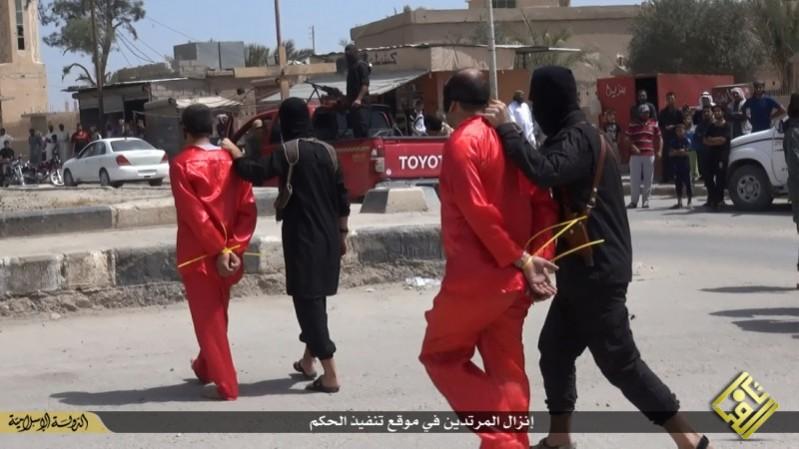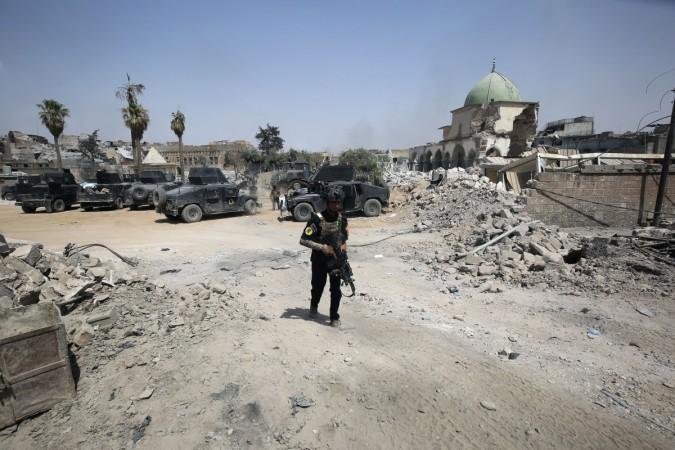The Islamic State group can still send funds to its supporters and motivate attacks in Europe and other countries despite military pressure and lack of revenue, experts at the United Nations said in a report. Also, terror outfit al-Qaeda remains strong in several areas especially West Africa, East Africa and the Arabian Peninsula, they added.
The UN experts, who are monitoring sanctions against the terrorist organisations, said that while the competition between ISIS and al-Qaeda continues, the "shifting alliances" among fighters "and cooperation on the tactical level in several regions also allow them to move between various groups," the Associated Press reported.
The report said that the threat from terrorist organisations continues to rise in Southeast Asia with ISIS trying to establish itself in the region. It cited the city of Marawi in the Philippines being under siege by militants linked to ISIS for over two months as evidence for the growing threat from extremist groups.
The experts added that the "core" of ISIS is to delegate decision-making responsibility to local commanders and switch to encrypted communications in an attempt to adapt to military pressure in Iraq and Syria. ISIS has been using drones to a large extent especially in Iraq and Syria, the report further added.
The experts said in the report that ISIS is trying to design and create larger drones to enable it "to weaponize the drones, thereby increasing its ability to strike at a distance."
It said Isis "continues to send funds to its affiliates worldwide" and is likely to continue to do so as long as it can afford to. Isis terrorists have also sent money to places the group does not have affiliates in to prepare for its eventual defeat in Iraq and Syria, an unidentified UN member state was quoted as saying in the report.
![In picture: An Islamic State flag hangs amid electric wires over a street in Ain al-Hilweh Palestinian refugee camp, near the port-city of Sidon, southern Lebanon January 19, 2016. [Representational Image] ISIS flag](https://data1.ibtimes.co.in/en/full/646018/isis-flag.jpg?h=450&l=50&t=40)
Several member states were quoted a saying in the report that ISIS militants returning home fall into three categories:
- Those who have been disillusioned with the group and "terrorism as an ideology". They can be deradicalised and reintegrated into the society.
- A smaller group of high-risk individuals who return to conduct "terror attacks".
- Those who are no longer associated with Isis but "remain radicalised and are ready to join another terrorist group should the opportunity arise."
Analysing the extremist trends by region, the report states that the attacks that took place in Europe in the first half of 2017 show that "Europe remained a priority region" for Isis attacks, AP reported.

However, the report said that ISIS has not carried out any attack since then in which the "core" group of the organisation is involved in the planning and decision-making process — sending militants and providing financial help.
The report quoted member states as saying that there has been "an increase in radicalisation and violent extremism" in connection with Isis networks in Europe.
When it came to Iraq, several member states said that key ISIS leaders left Mosul before the Iraqi forces launched the attack in the region. However, it added that ISIS resistance in Mosul "indicates that its command and control structure has not broken down completely and that the group remains a significant military threat."

ISIS leaders in Syria also left Raqqa before the attack and air strikes took place.
The report said that the Arabian Peninsula faces "a significant threat" from both ISIS and al-Qaeda in Yemen. It quoted a member state as saying that more than 30 ISIS-linked "terrorist plots" were disrupted in the region, including one targeting the Grand Mosque in Mecca, and Jeddah in Saudi Arabia.
Hamza bin Laden, son of Osama bin Laden, had earlier released a statement urging supporters to join al-Qaeda training camps in Yemen.
















